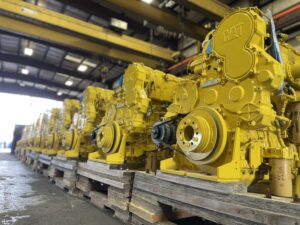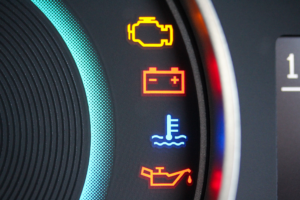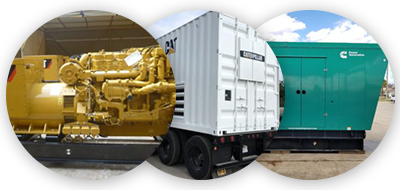
A steady and predictable power supply is of paramount importance as people visit healthcare centers every day to meet their medical needs.
After all, a surgeon in an operating theater, a patient connected to lifesaving equipment in an intensive care unit and a nurse pulling up an electronic health record all need to know power will continue to flow and allow for successful treatment.
Unfortunately, this is not always the case.
In 2005, when Hurricane Katrina came ashore in New Orleans, Louisiana, the resulting loss of power had a devastating impact on local hospitals.
While some facilities managed to successfully evacuate patients, others did not and could not care for the patients who were stranded there. In the end, out of the almost 1,600 storm-related deaths, multiple patient fatalities occurred at several different hospitals due at least in part to power outages.
Backup power systems are crucial to help prevent such outcomes. Staying well-equipped and well-prepared to ensure a steady supply of power during crises can lead to more positive healthcare outcomes, and reduce the impact of such disasters.
The Emergency Power Supply System (EPSS)
Every hospital has a dedicated emergency power supply system (EPSS) – typically fueled by either diesel or natural gas – designed to immediately activate in the event of a primary power supply interruption. The National Fire Protection Agency (NFPA) 110 standard provides guidelines for an EPSS including enough fuel for 96 hours and enough power to operate a surgical suite.
The problem with backup systems is that it’s easy to forget about them until you actually need them, which is why it’s important to answer the following questions on a regular basis to formulate and maintain an effective emergency power plan:
- System reliability: With ever-shrinking maintenance and construction budgets, does your EPSS just meet required codes or can it do more? In the case of an extended power outage, does your EPSS generator have an unlimited continuous operating power (COP) rating or just a time-limited emergency power supply (EPS) rating?
- Maintenance and shutdowns: What is your maintenance schedule and how often do you practice active shutdowns? Are all schematics and diagrams up-to-date to reflect the EPSS layout in case operational problems occur?
- Circuit breaker testing: Are you following the NFPA 99 standard for annual circuit breaker testing for healthcare facilities?
- Fuel storage: Does your hospital have enough fuel on hand to meet NFPA 110 guidelines?
- Failure planning: Will the EPSS maintain electronic health records in the case of an emergency?
- Construction modifications: Have all building and wiring modifications been tested in conjunction with the EPSS to ensure continuous operation?
Power Points for Generators for the Hospital and the Healthcare Industry
Another way of managing emergency power generators for hospitals and the healthcare industry is to break out power requirements into three levels of power points. These are based in order of critical importance so the EPSS can regulate power accordingly:
- Life Safety (Level 1): These processes include fire sprinkler systems, fire alarms and emergency lights.
- Clinical Applications (Level 2): These processes include the emergency room, operating theaters, patient rooms and the data center.
- Convenience/Comfort (Level 3): These processes such as air conditioning and hot water are essential to patient ease and comfort but are not life threatening if not present or operating below capacity. In addition, their operation can be delayed or even stopped entirely to accommodate level 1 and 2 power needs.
Understandably, hospital administrators and personnel are primarily concerned with the quality of patient care that is taking place right in front of them.
But as the examples of Hurricane Katrina and other smaller-scale power outages demonstrate, power loss can occur at any time for a variety of reasons and result in undesired healthcare outcomes.
To effectively utilize power generators for hospitals and healthcare industry applications, hospital administrators should maintain forward-thinking emergency plans to ensure the proper function of an EPSS.
Want to buy with confidence knowing all units are load tested and guaranteed? Choose from a variety of new, used, and surplus gen sets that meet the needs of the healthcare industry. Depco Power Systems can help you power your world with confidence.






